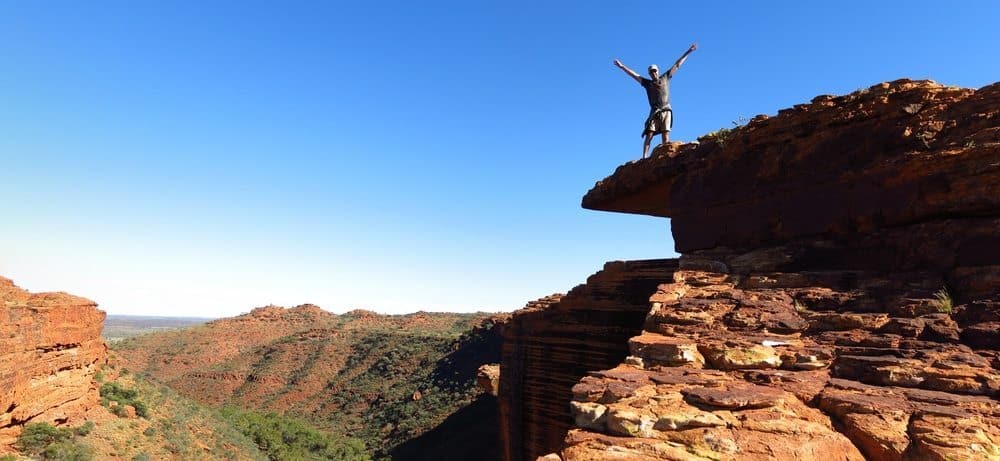Packing Checklist Australia
Packing for Your Trip to Australia
Clothing
When packing, consider the specific location and climate of your stay in Australia:
- Hot Locations: Bring lightweight clothing such as t-shirts and shorts. A hat and sunscreen are essential to protect against the sun.
- Rainy Weather: Pack a raincoat or waterproof jacket for areas with frequent rain.
- Seasonal Considerations: Australian summers (starting in February) are hot. Light clothing like jeans, t-shirts, and a light jacket should suffice. Winters (around July) are mild compared to Northern Hemisphere winters. Bring long-sleeve shirts, warm jeans, boots, and a medium-weight coat. Research the local weather to pack appropriately; visit Bureau of Meteorology for accurate forecasts.
Electronics
Bring essential devices such as cell phones, cameras, and music players. Ensure you have suitable power adaptors for Australian outlets. Check compatibility online or at electronics stores. Consider preloading maps or travel apps on your devices.
Food and Quarantine Rules
Australia has strict quarantine laws, prohibiting many fresh, dried, or pre-packaged foods to prevent biosecurity risks. If you’re considering bringing food, consult airport security or your educational institution to confirm what’s allowed. Improperly declared items may be confiscated.
Important Documents
Carry original documents in your hand luggage and leave copies with someone you trust at home. Ensure you have:
- Passport and visa
- ID and birth certificate
- Confirmation of Enrollment (CoE)
- Travel insurance and health insurance documents
- Flight tickets and itineraries
- Bank cards and traveler’s checks
- Emergency contact details
Luggage Security
Use locks on your luggage and keep spare keys. Never carry items for others unless you fully understand their contents to avoid customs issues.
Insurance
Overseas Student Health Cover (OSHC): Required for all international students, this insurance helps cover medical expenses. Arrange it before traveling and review what it covers.
Travel Insurance: Protects against unexpected events like lost luggage, flight cancellations, or emergencies. Investing in travel insurance ensures financial protection during unforeseen situations.
Money
Carry a modest amount of cash for initial expenses but rely on bank accounts for larger sums.
Traveler’s Checks: Consider carrying AU$1,500–3,000 to cover initial costs.
Declare amounts exceeding AU$10,000 to customs upon arrival.
Short-Term Accommodation
It’s essential to arrange at least temporary accommodations before arriving in Australia. Options include:
- Hostels: Affordable options can be booked via YHA Australia.
- Hotels: These can cost upwards of AU$150 per night, so plan accordingly.
- Institutional Assistance: Your educational institution may offer housing support or recommendations.
By planning ahead and packing strategically, you can ensure a smooth transition to life in Australia and make the most of your experience.
International Student Checklist
What to Bring – Travel Checklist
- Documents:
- Valid passport with student visa stamped
- Two passport-sized photographs
- Airline tickets and itinerary
- Travel details (including accommodation plans)
- Offer letter and information pack
- Confirmation of Enrollment (CoE)
- Credit cards and initial funds (traveler’s cheques or cash for the first few days in Australia)
- Medical Essentials:
- Personal medication as prescribed by your doctor
- Pair of spectacles or contact lenses
- Have a dental check-up before departure
- Other Essentials:
- Camera for capturing memorable moments
- Orientation Guide (read it before arrival)
- Suitable luggage with locks
What Not to Bring
- Avoid bringing prohibited items to prevent issues with customs. If uncertain about any item, declare it to a customs officer. Never carry goods for others, as they may contain prohibited substances, leading to severe penalties.
- Common Prohibited Items:
- Fresh fruit and vegetables
- Meat products
- Packaged meals
- Dairy products
Clothing and Personal Items
- Tropical Climates (e.g., Rockhampton, Brisbane, Gold Coast, Fiji): Lightweight clothing suitable for warm, humid weather.
- Cooler Climates (e.g., Sydney, Melbourne): Pack warm clothing, including winter jackets and sweaters.
- Formal Wear: Suits or formal attire for official events such as dinners and ceremonies.
Tip:
Inspect your luggage carefully before packing and ensure it hasn’t been tampered with to avoid carrying any restricted or illegal items.
Packing Checklist Australia
General Tips
- Pack Light: Bring only essentials, as you can purchase additional items once you arrive.
- Know What’s Provided: Check if your accommodation includes basics like towels and bed linens.
- Dress for Your Role:
- For physical work (e.g., berry picking): Casual and durable clothing.
- For office or customer service jobs: Include business attire and formal wear.
- Check the Weather: Prepare for the climate during your stay. For winter months, include warm clothing and thermal layers.
Luggage Recommendations
- One checked luggage
- One carry-on baggage
- Personal laptop
Customs Regulations
Australia and New Zealand enforce strict customs laws. Declare items like food, plants, animals, and camping gear. When in doubt, consult these websites for guidelines:
Packing Checklist
Clothing:
- Tops: Casual T-shirts, business-style shirts, and a formal top for events
- Pants and Skirts: Business-style pants/skirts, jeans, and shorts
- Undergarments: Include thermal undergarments for colder months
- Footwear: Socks, shoes, and sandals
- Outerwear: Jacket, sweater, hat, scarf, and raincoat
- Swimwear
Other Essentials:
- Toiletries
- Prescription medicines and a small first aid kit
- Sunscreen
- Electric adapter for electronic items
- Backpack for day trips and travel
Final Reminder
Double-check customs rules and pack accordingly to avoid fines or confiscation of items. Safe travels!


